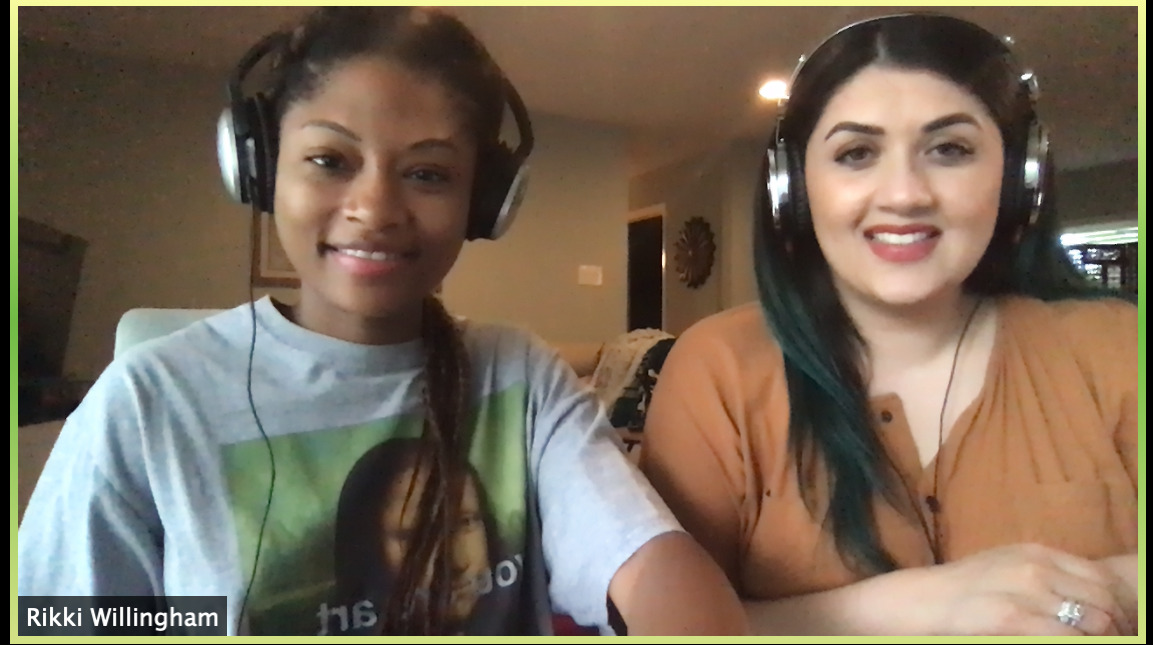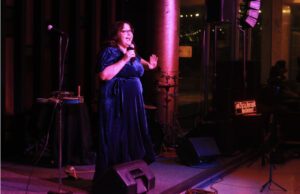
Last week I had the opportunity to speak to Eric Aaberg, a junior marketing student and Student Director of Esports at the University of Texas at Dallas. This really opened my eyes on how college campuses were changing due to the ongoing threat of COVID-19. This made me want to see if there were any key similarities and differences between campuses in the Dallas area and further up in North Texas. I reached out to Sharmeen Jariullah and Rikki Willingham, M.A. and P.h.D students at TWU and hosts of the Gray Matters the Blog, to discuss on-campus changes during COVID-19.
Hello Sharmeen and Rikki, have you guys noticed any up-front changes to the college campuses?
As M.A. and P.h.D students, one of the biggest changes has been to the class format itself. In addition to departmental, program, and publication responsibilities, we have class and assignment responsibilities. Since everything, including most class meetings, are online, we have additional work to make up for the lack of usual discussion. The average day is filled with more readings and written assignments as well as virtual seminars and meetings. This can have long term effects on admission levels for students, especially for those who do not find the virtual learning environment conducive to their needs or goals. Especially if the institution is not well-equipped to handle this situation, students will choose to attend those schools that are better equipped and can support their research and academic needs.
A poll by Barnes and Noble in early April showed that 40% of students weren’t confident in the transition from in-person courses to virtual classes. Why do you think students were nervous about this transition and were there any concerns you or other students had to overcome?
We actually had the opportunity to discuss the experiences we have both had in higher education and share helpful advice and tips with our community in Episode 9 of the podcast series and unfortunately, virtual education is not accessible for some students. Many students feel disconnected from their learning experience and cannot receive the assistance they need with virtual learning. With virtual learning environments, students can also feel overwhelmed with assignments and burdened by the constant need to be glued to their computers. Time management becomes increasingly more important with a greater need for work-life and balance. We have both experienced the complexities of virtual education, graduate school is a unique experience that often requires intensive engagement with your area of study. Many students are working on their research with faculty and looking for ways to strengthen their relationships with their departments but this has become more difficult due to the pandemic. Overall, there seems to be a common theme that students fear being disconnected from their college education and experience.
There are various reports showing universities with issues filling out vacant residential halls. UT Austin reported that “Out of 7,300 open spots, a total of 4,500 students have committed to living on campus”. Do you think this has more of a positive or negative effect on continuing students and will it have any type of long-term effect on dorm layouts and student housing?
Living on campus for the continuing students can have a positive impact on certain student populations but only if it is safe. If residence halls are unable to manage or prevent the spread of an outbreak, it is not a positive solution. The long term implications on dorm layouts and student housing will depend on how many students choose to reside on campus. Additionally, it would make sense for schools to introduce housing that allows for social distancing as opposed to the close-knit quarters common in most undergraduate student housing.
With more courses put online and additional restrictions, how have campus organizations been responding and how have they been able to foster a community in a time of limited face-to-face interactions?
We have the opportunity to work closely with Texas Woman’s University’s Graduate Student Council and this organization has been a great resource to graduate students. This semester they are supporting students by holding writing seminars, mental health training, and fun networking events. We have seen so many organizations work hard to foster community at TWU during this difficult time.
At the end of the fall semester you had many students like John Novakovich, a Northwestern University economic undergraduate student, have luxurious job offers rescinded due to the economic conditions of COVID-19. Has this made you more proactive on networking and has the university developed anything to ensure smooth transitions from graduation to a job offer?
It is common for job offers to get rescinded due to economic uncertainty. The value of networking was emphasized even more the pandemic and continues to remain of utmost importance. Since more conferences and seminars are virtual students have more opportunities to engage in the field and network with other professionals. The university is really pushing students to engage with the office of career development to be better prepared after graduation.
On June 19th, the Mississippi State Health Officer Dr. Thomas Dobbs announced 381 new COVID-19 cases with some patients being linked to different fraternity rush parties in the area. Do you think the students on your campus have been compliant with university rules and has there been any noticeable stress with students not being able to attend weekend parties?
Texas Woman’s University has restricted student activity on campus and enforces the CDC guidelines of social distancing, The TWU community has always been advocates for student health and the wellbeing of the Denton community as a whole. Personally, we have not had the opportunity to engage with on campus activities due to us both being commuter students, but we have heard from other that TWU is taking every safety precaution possible and above all protecting the TWU community.
